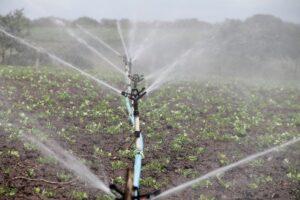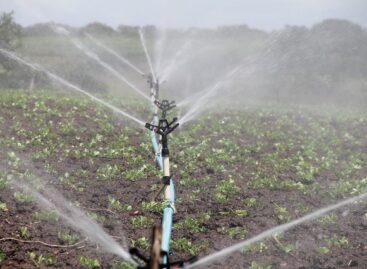Let’s keep water in the landscape!
The network of village farmers of the National Chamber of Agrarian Economy conducted a national survey in March, the purpose of which is to find out the willingness of farmers to keep water in the landscape in low-lying areas suitable for water retention. During the survey, more than 10,000 of the approximately 11,000 potentially affected producers assigned to answer the survey responded in less than 1 month, which supports the need for answers to the problems caused by climate extremes.

(Photo: Pixabay)
Due to the increasingly extreme weather and the hectic distribution of precipitation caused by global warming, the establishment of efficient water management is an increasingly urgent task – also at the level of individual farms. In 2022, our country had to deal with a century-long drought. The World Meteorological Organization confirmed that 2023 was the warmest year globally since measurements were taken. The National Chamber of Agrarian Economy therefore launched a survey among its members. Through the network of village farmers, NAK mapped the knowledge, demand and willingness of farmers regarding regional water retention solutions, as well as the conditions under which farmers are able and able to contribute to their application. The survey was linked to 40,000 hectares of low-lying, potentially water-retaining areas designated on the basis of natural-environmental and technical aspects, which affects nearly 11,000 farmers and 250,000 of their farmland, it can be seen that 80 percent of the farmers in the designated area felt it was important to conserve water in the cropland and the necessary steps for this, in addition, another 100 farmers from outside the affected area filled out the questionnaire. In addition, more than 2,000 respondents indicated that they would be willing to create and maintain areas related to water retention.
Climate change is undeniably underway, we are currently in a period of warming that we must learn to adapt to
However, this is not only a task for the state, but also for producers. NAK feels it is not only its task, but also its mission, to help its members in making the decisions necessary for the changes, and to provide them with professional support. After the evaluation of the questionnaire and the processing of the professional responses, NAK plans to launch workshops among the producers concerned, where they can learn about the methods of sustainable, ecosystem-based regional water management from a professional and legal point of view, as well as the non-productive investment subsidies for water protection that will soon be opened within the framework of the Common Agricultural Policy with details. NAK’s goals include – on behalf of the Ministry of Agriculture within the framework of the professional cooperation between the OVF, the Irrigation and Water Management Research Center of the Institute of Environmental Sciences of the Hungarian University of Agrarian and Life Sciences, and the Agrárközgazdasági Intézet Nonprofit Kft. – the selection of sample areas that can help to develop good practices and starting tenders.
NAK
Related news
European Court of Auditors: EU Commission proposals affecting the common agricultural policy may cause uncertainty
🎧 Hallgasd a cikket: Lejátszás Szünet Folytatás Leállítás Nyelv: Auto…
Read more >Related news
Nestlé to sell remaining ice-cream assets but commits to Froneri venture
🎧 Hallgasd a cikket: Lejátszás Szünet Folytatás Leállítás Nyelv: Auto…
Read more >Lidl guarantees fairer prices for cocoa farmers
🎧 Hallgasd a cikket: Lejátszás Szünet Folytatás Leállítás Nyelv: Auto…
Read more >








